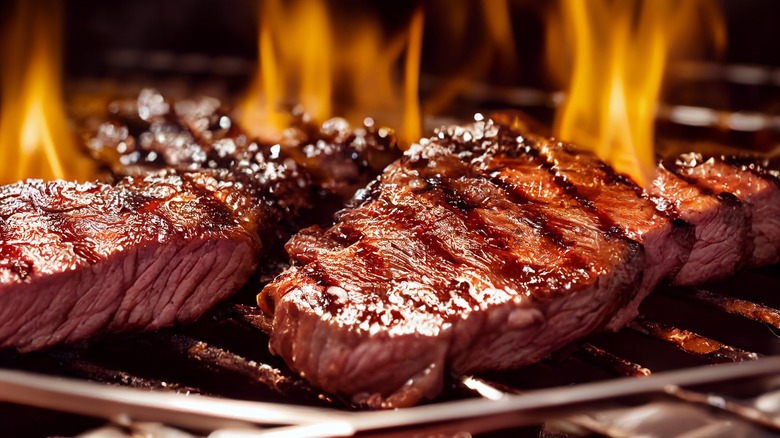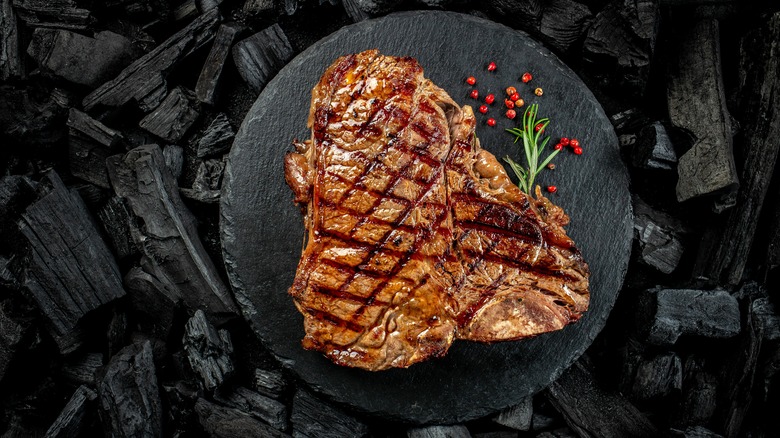How To Perfectly Cook Steak When You Live At High Altitudes
If you live in a sea-level state, you may be unaware how much cooking differs at high altitudes. Meats, such as steaks, are harshly affected by these changes, which can pose a problem for tourists and cross-country movers. Rest assured, there's always time to re-learn your usually stellar recipe before the next dinner party.
As one of the most common way to prepare red meat, grilling steak is one technique that must be adapted for high elevations. Due to low humidity and air pressure levels, the amount of moisture in the atmosphere is significantly reduced at these altitudes. In turn, this causes steak to lose moisture more quickly as evaporation occurs. Thankfully, to combat this, your cooking method doesn't have to change much.
While the USDA says that meats cooked via moist heat (such as simmering or braising) can take up to 25% longer at elevations of 5,000 feet versus sea level, dry heat techniques such as grilling and pan-searing aren't as harshly affected by changes in altitude. In fact, to make perfectly juicy steaks at a high elevation, all you need to do is allow them a longer resting period so the available moisture seeps through the meat.
Don't rush steaks at a high altitude
If your high-altitude issue is not steak that's dry, but steak that's undercooked, you may need to give it a few more minutes on the grill or in the oven. Why? This can be attributed to the way water reacts under differing circumstances. Most people know that the boiling point of water is 212 degrees Fahrenheit, but you may not be aware that it decreases by one degree for every 500-foot elevation increase. The only workaround for this is to cook your food for longer — not at a higher temperature. This is true for cooking both steak and chicken dishes at high altitudes: Increasing the temperature will only make the meat dry out faster, rather than cook more efficiently.
Kyle Woodward, pitmaster at Woody's Q Shack, shared some advice to chefs who are newer to high-altitude cooking. "Have patience, and don't panic when your meat is taking longer, or when it stalls out," he said. In the same interview, Utah BBQ Company's Fidel Astorga reiterated the importance of increasing cook time rather than temperature. "I find that low and slow works for us and our cooking method at higher elevations," he said.

